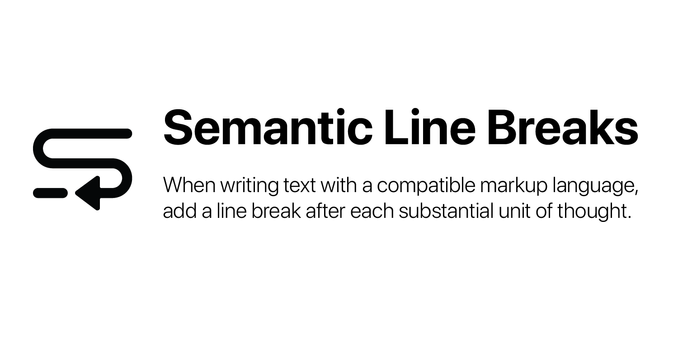@grvsmth @xahteiwi @OmegaPolice
It was a LaTeX convention and it has been carried over elsewhere.
The biggest benefit is that most revision control systems (from RCS to git) work really well with line diffs. If you modify a sentence and you have one sentence per line, the diff will show changes in one sentence. You don’t see sentences that haven’t been changed in the diff. If you don’t do this, the diff will contain irrelevant bits of text (and a lot more if you rewrap to an 80-column boundary). This makes review much easier.
This, in turn, makes merge conflicts simpler. If two people edit different sentences, they either won’t have conflicts or will have conflicts that are trivial to merge.
I’ve never had the problem of moving to this because it’s such an obvious benefit that I’ve always started projects using it. The only time I’ve had to reformat things are if other people contribute and don’t follow the style, so the manual thing is not too bad.
